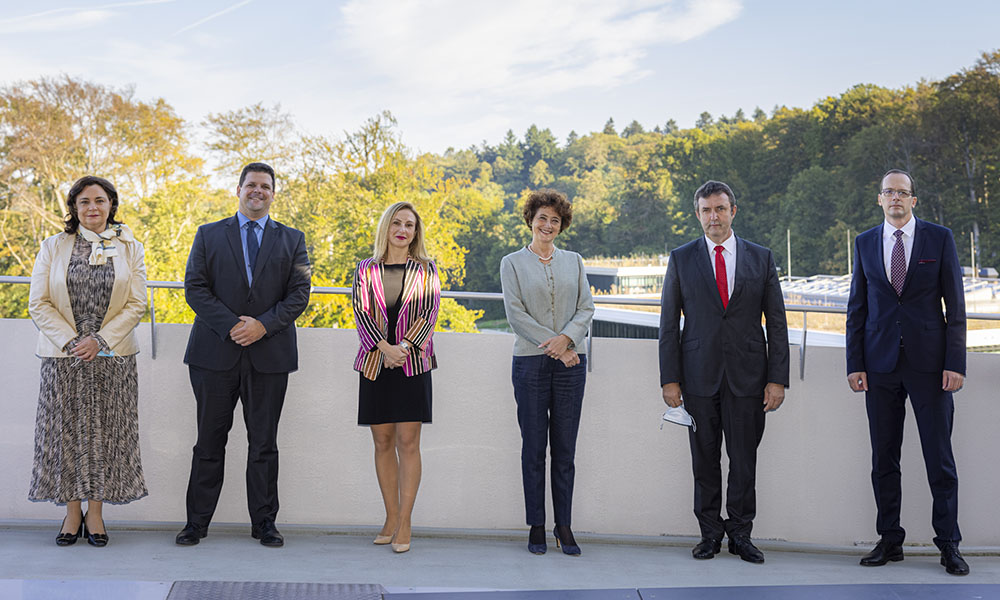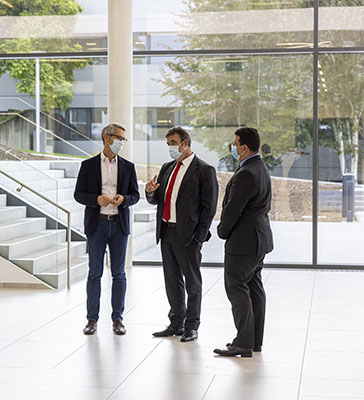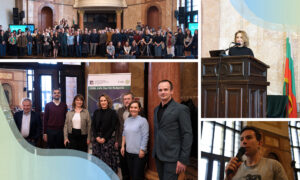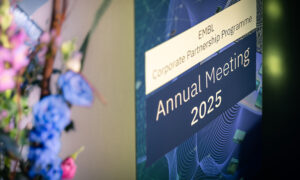
Celebrating Hungary-EMBL collaborations for life sciences research
EMBL will strengthen already close collaborations with Hungarian research institutes to jointly address urgent biological and environmental challenges, including antimicrobial resistance and infectious diseases.

The joint commitment follows discussions at EMBL’s headquarters today between Professor Dr. László Palkovics, Hungarian Minister for Innovation and Technology, and EMBL Director General Professor Edith Heard.
“Global threats such as the current coronavirus pandemic require collaborative efforts across borders. Hungary’s membership of EMBL provides a unique opportunity to ensure our expertise in life sciences research can have maximum benefit across Europe,” Minister Palkovics said.
Professor Heard said: “Understanding how life works through basic research, particularly in the context of changing environments, will be critical for the development of effective solutions to many of the current challenges facing human and planetary health. EMBL and Hungary understand the task is too big for one institute or country alone, and we are delighted with Hungary’s support for EMBL’s place at the centre of European life science.”

Their talks occurred during a visit to EMBL by the Minister and the leaders and supporting institutions of EMBL’s partner: the Hungarian Centre of Excellence in Molecular Medicine (HCEMM). In addition to HCEMM, the discussions included the University of Szeged, Semmelweis University, the Biological Research Center, Szeged, and the National Research, Innovation and Development Office.
Minister Palkovics’ visit to EMBL Heidelberg was his second in two years. Hungary officially joined EMBL in 2017 as a full member state, after three years as a prospect member. The EMBL-HCEMM inter-institutional partnership was created in 2018 to facilitate an ongoing transfer of institutional, research, and collaborative expertise between the two organisations.
HCEMM has received funding from the European Union’s Horizon 2020 research and innovation programme under grant agreement No 739593. HCEMM is supported by the EU Programme H2020-EU.4.a. – Teaming of excellent research institutions and low performing RDI regions.


